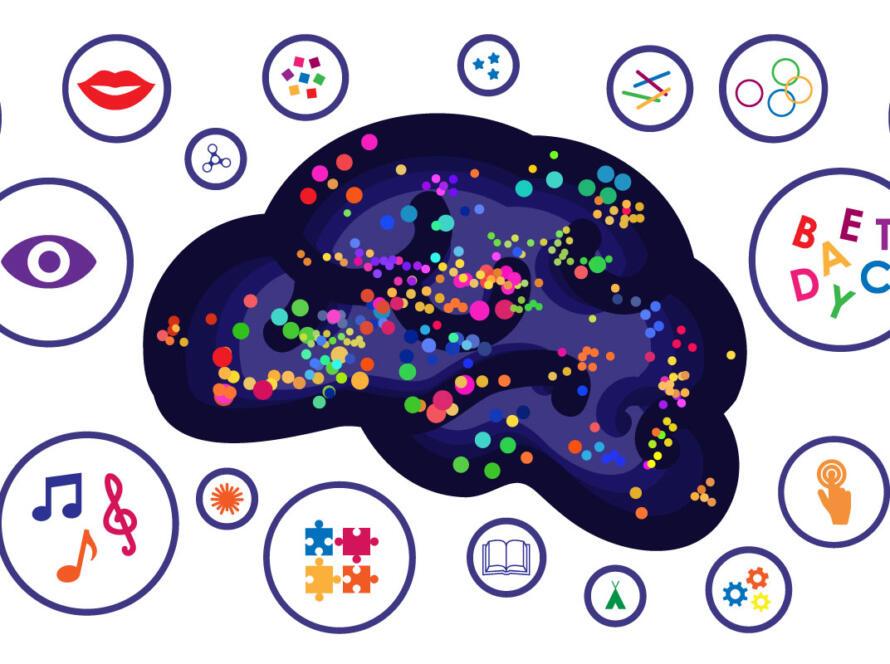Ever wondered how to give your kid a serious brain boost? Look no further than multilingualism. That’s right, raising your child to speak multiple languages isn’t just a cool activity – it’s a surprisingly useful job. As a parent or teacher, you’re always on the lookout for ways to help your little ones grow smarter and more adaptable. Well, multilingualism might just be your secret weapon. From improved problem-solving skills to enhanced creativity, the benefits are mind-blowing. Ready to find out why teaching your children a new language might just be your next big move?
The Academic Benefits of Teaching Children a New Language
Teaching children a new language isn’t just about expanding their linguistic horizons – it’s a powerful tool for boosting both their cognitive development and overall academic performance.
Boosting Brain Power by Teaching a New Language
Multilingualism acts like a mental gym for children. As they switch between languages, their brains are constantly exercising, leading to improved focus and attention span. This mental flexibility isn’t just limited to language skills – it spills over into other areas of problem-solving and critical thinking. Children thus learn to think outside the box and train their brains to absorb and store more information.
Enhancing Children’s Academic Performance
When you teach your children a new language, you’re not just teaching them vocabulary and grammar; you’re helping them develop cognitive skills that translate across all subjects. Surprisingly, this process can even improve their grasp of their first language, as they become more aware of linguistic structures and patterns. Thinking in more than one language can then help your kids look at their studies from a different angle and encourage them to learn other subjects with a newfound passion.
Fostering Creativity by Teaching Children a New Language
Teaching your kids more than one language is a great way to boost their creativity! When they explore the unique stories, myths, and traditions of different cultures, it opens up a whole new world of ideas. This exposure not only expands their knowledge but also helps them see endless possibilities, encouraging them to think outside the box and even come up with new ideas of their own. Creativity and problem-solving go hand-in-hand, so the more you nurture one, the more the other will grow. Learning new languages is a powerful tool in this process!
So, teaching children a new language can indeed boost their academic performance. Whether they’re interested in math, science, arts, sports, or any other subject, languages give children a better edge to enhance their knowledge, think outside the box, and come up with new creative ideas.
The Lifelong Benefits of Teaching Children a New Language
Teaching your children a new language is a surprisingly useful job that helps you shape their future in remarkable ways.
Enhancing Executive Functions by Teaching Children a New Language
Children who are exposed to multiple languages often demonstrate stronger executive functions. These are the mental skills that help us plan, prioritize, and make decisions. By juggling different linguistic systems, multilingual kids become adept at managing complex cognitive tasks, giving them an advantage in both academic and real-world scenarios.
Finding better Career Opportunities
Multilingual individuals often enjoy better career opportunities in our increasingly globalized world. Perhaps most importantly, teaching a new language improves communication and fosters cultural understanding, helping children become more empathetic and open-minded global citizens. So, by engaging in this rewarding task, you’re not just teaching words – you’re opening doors to a world of possibilities for the next generation.
Boosting Communication Skills by Teaching a New Language
When you teach your children a new language, you’re introducing them to a whole new culture, traditions, and expressions unique to that country. This exposure helps them enhance their ability to communicate with people from different backgrounds. As they grow up, multilingual kids will also have richer travel experiences, feeling more confident and comfortable engaging with people in several languages.
So, teaching your children new languages helps them navigate and manage complex cognitive tasks in all aspects of their lives. It can also boost their chances of getting better job opportunities and confidently communicate with others.
Common Mistakes to Avoid When Teaching a New Language
Here are a few common mistakes you should avoid while teaching your children a new language.
Memorizing Without Understanding
Teaching a new language to children can be a rewarding yet challenging experience. As educators, it’s crucial to steer clear of common pitfalls that might hinder the learning process. One frequent mistake is relying too heavily on pure memorization, which can make the new language feel tedious and disconnected from real-life usage. Instead, focus on interactive and immersive teaching methods that engage young learners.
Neglecting the Cultural Context While Teaching a New Language
Another error to avoid is neglecting the importance of cultural context when teaching a new language. Language and culture are deeply intertwined, and incorporating cultural elements can make the learning experience more meaningful and enjoyable for children. Remember, teaching them young is key to fostering a lifelong love for languages.
Forgetting to Be Patient and Supportive
Lastly, don’t underestimate the power of patience and positive reinforcement. A common fear among people who are learning a new language is the fear of talking. They are so afraid of mispronouncing words, or of sounding ridiculous because of their accent, that they refrain from talking as much as possible. While it is understandable, this is the worst approach to take when learning a new language, because how will they learn if they don’t communicate and make mistakes? Learning a new language is a journey, and it’s thus essential to create a supportive environment where mistakes are seen as opportunities for growth rather than failures.
Frequently Asked Questions About Raising Multilingual Children
Is it confusing for children to learn multiple languages?
Contrary to popular belief, multilingualism does not confuse children. In fact, it enhances cognitive development in children. Young minds are incredibly adaptable and can easily differentiate between languages. Exposure to multiple languages from an early age can actually improve a child’s ability to focus and switch between tasks.
When is the best time to start teaching them a new language?
The earlier, the better! Children’s brains are like sponges, especially in their first few years. This is the ideal time to introduce multiple languages. However, it’s never too late to start. Even older children and adults can benefit from language learning, though it may require more effort and dedication.
How can I support my child's multilingual journey?
Consistency is key. Practice speaking the foreign language with your child regularly, in everyday situations. Read storybooks, watch age-appropriate shows, and engage in conversations in different languages. Remember, children who are learning a language need plenty of exposure and practice. Don’t worry about perfect grammar – focus on communication and enjoyment. The rest will naturally flow.
Will teaching my child a new language affect their academic performance?
Research shows that multilingualism can actually boost academic performance. It enhances problem-solving skills, creativity, and mental flexibility. These cognitive benefits often translate into improved performance across various subjects, not just in language classes.
Conclusion
So, there you have it – teaching a new language is way more than just conjugating verbs. It’s a chance to open minds, build connections, and make a real difference in your child’s life. Sure, teaching children a new language takes some effort and can be challenging. But you’ll soon realize what an unexpectedly useful and awesome job you’ve done! Besides, who knows? You might even pick up a new language yourself along the way.








